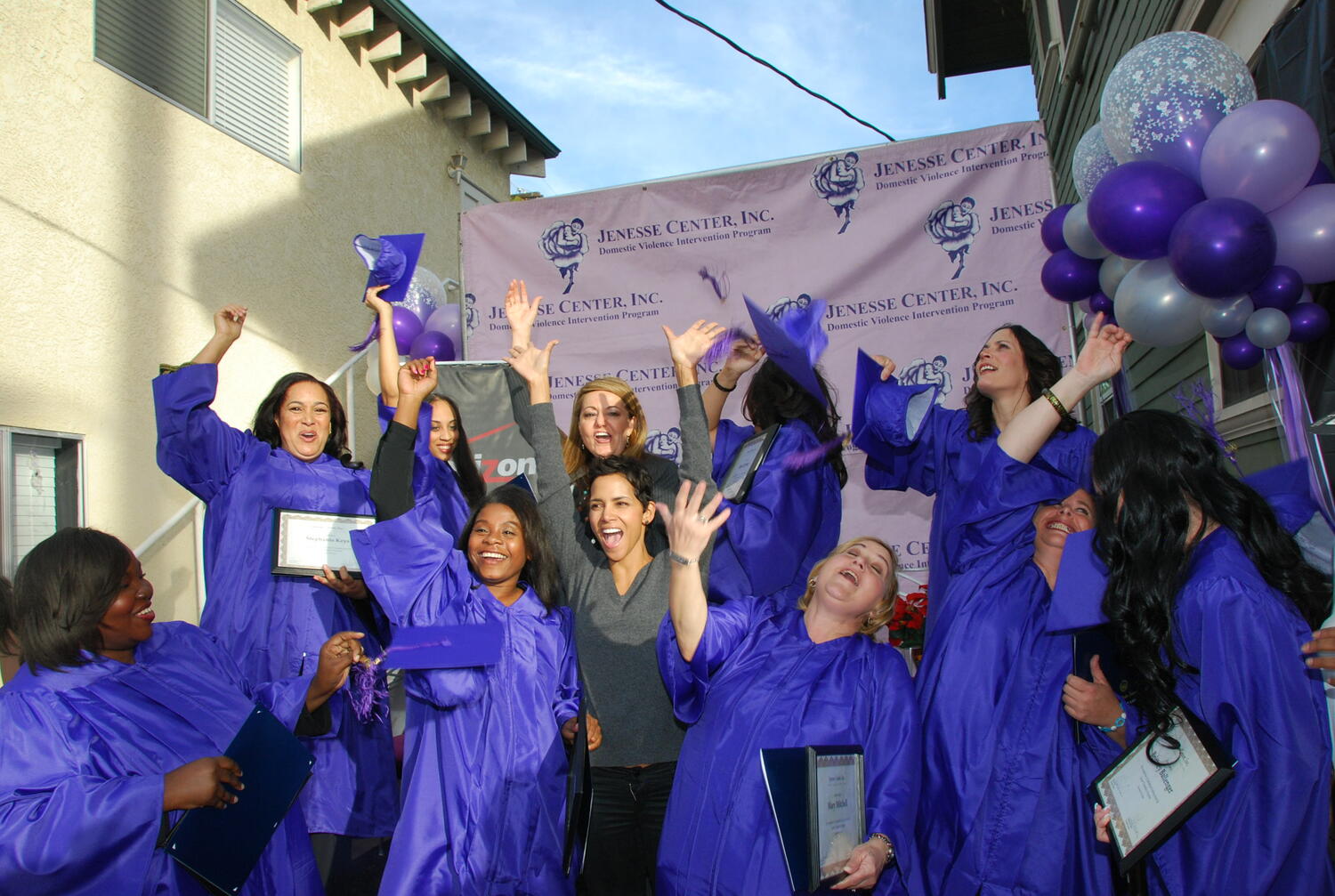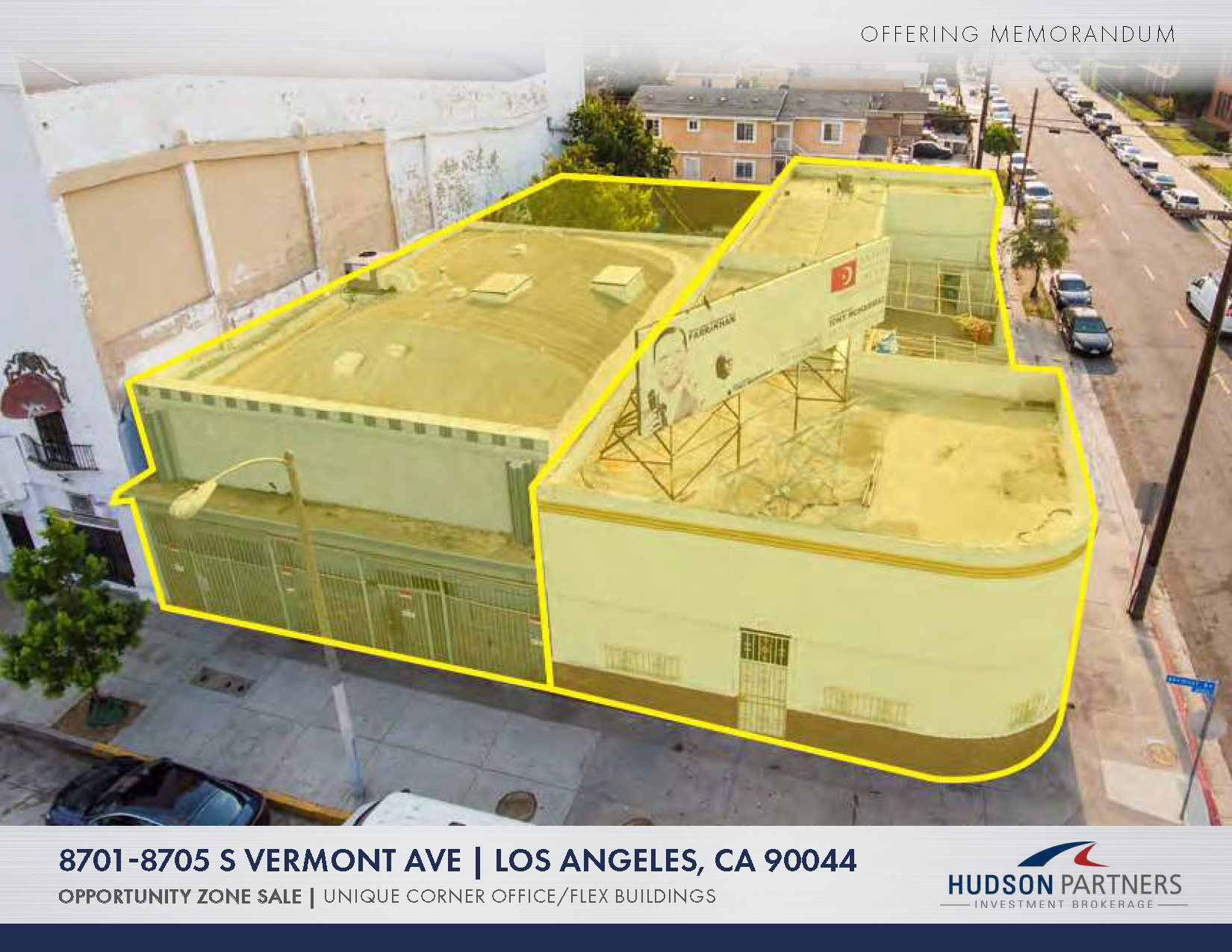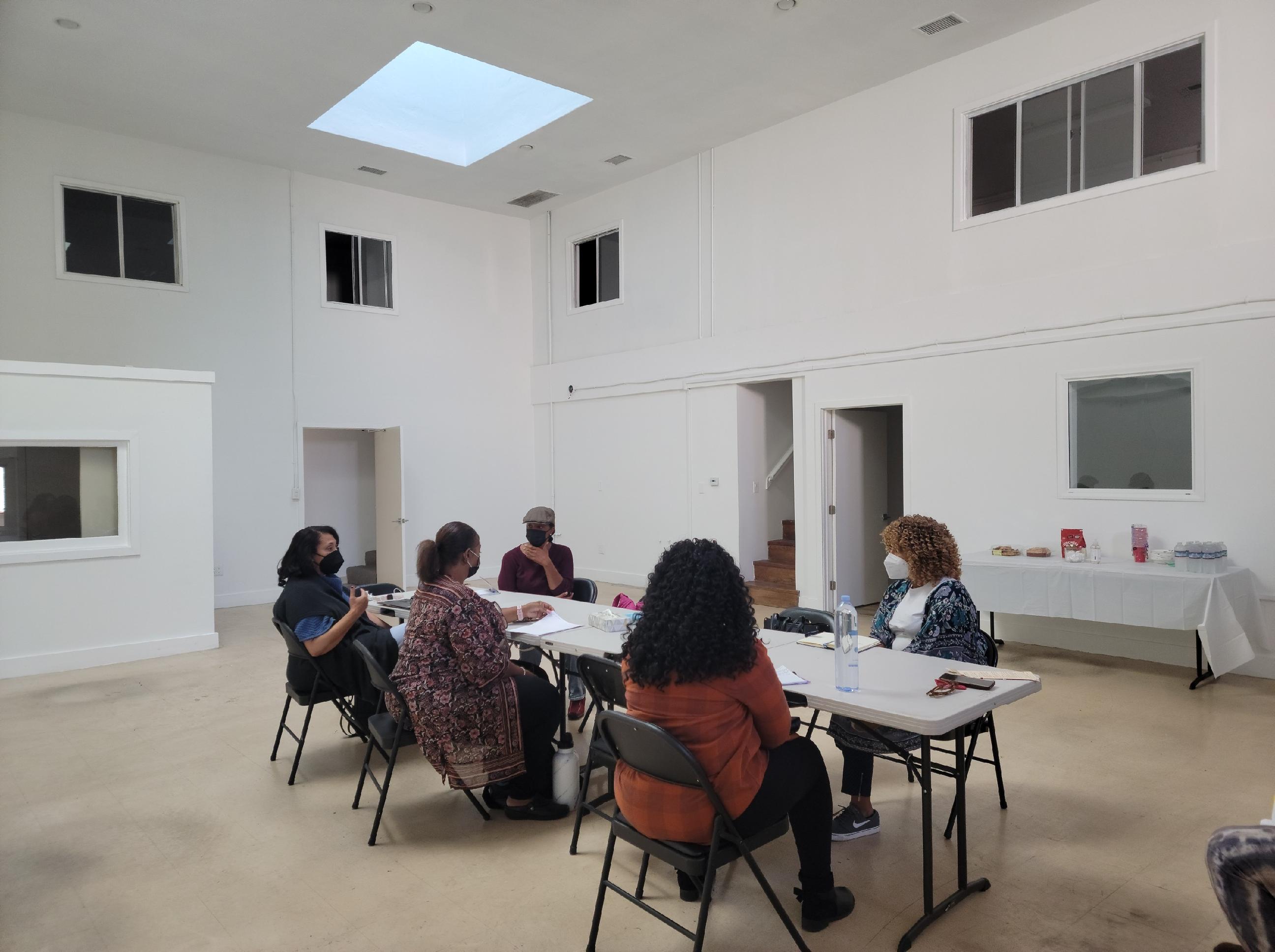Jenesse Center’s New Facility Aims to End Domestic Violence in its Community and Beyond

Jenesse Center, Inc. was founded in 1980 by five women who channeled their experience of domestic violence into a nonprofit that supports survivors and their families, delivers violence prevention and intervention programs, and provides community services in its corner of Los Angeles.
Jenesse's culturally sensitive programs and services transition families from crisis to self-sufficiency, offering mental health counseling, independent life skills classes, computer training, job referrals, after school programs for children, field trips, tutoring, and direct legal services. And with its emergency and transitional shelters, Jenesse can house women and children from 30 days up to two years.
Now it’s expanding to advance its mission to end domestic violence.

The Jenesse Family Institute: Building a legacy by putting community first
Seeing a rising demand for its services, Jenesse envisioned the Jenesse Family Institute, which will serve as a community resource for families to prevent domestic violence from arising in the first place. “I think that’s always been our goal – we’ve wanted to stop domestic violence with the next generation,” says Alyson Messenger, Jenesse Center Attorney. “The Jenesse Family Institute really is the fruition of that vision.”
In response to growing demand for its services – especially during the pandemic – Jenesse Center purchased two connecting buildings in South Los Angeles to expand the services they offer in the community. The new buildings will contain a drop-in center where survivors can seek help, the Permanent Housing Assistance Program, and workforce development services.
The purchase was made possible through a $1.8 million bridge loan from Nonprofit Finance Fund (NFF), ensuring that even more people impacted by domestic violence can access the support they need to move forward. Learn more about the building and the programs and services it will house as it works to end domestic violence.
The building now purchased, voices echo off the bare floors and whitewashed walls as Jenesse’s board and staff meet in the empty space. Soon will come color and the bustle of programs.

Building for the Future: How Jenesse serves its community and how you can help
Dr. Angela Parker, Director of Training and Programs, Jenesse Center, reflects on Jenesse’s unique connection with the community it serves: “When you have an organization that was literally founded by people in the community, for people of the community, who know the people of the community, that is an organization that’s worth investing in and nurturing and helping to grow.”
Appropriate funding remains crucial for Jenesse and the many human services organizations that support our communities. Hear about the importance of funding for organizations like Jenesse:
Building Hope: Jenesse's lifesaving community impact
Jenesse’s services and compassionate staff provide life-changing skills, ongoing support, and – most importantly – hope to clients, families, and the community. “You will never see such inspiring, powerful, dynamic, loving people working so hard to bring so much light into the world,” says board member Riaz Patel. See Jenesse staff and supporters reflect on how Jenesse is changing lives:
Building a Foundation: From grassroots nonprofit to full-scale programs addressing domestic violence
The Jenesse Family Institute is only the latest step on a long journey of adapting to meet community needs. Over the years Jenesse has evolved from a grassroots hotline and basic support to providing full-scale educational programs and housing for women and families experiencing domestic violence. Learn how Jenesse laid the foundation for this essential work:
Building for Change: A board perspective on Jenesse's growth
Throughout its first 40 years, Jenesse has remained steadfast in serving its community. Listen in as supporters and members of Jenesse’s Board of Directors reflect on the organization’s mission and impact:
“Every program that has been created by Jenesse staff under the direction of [Executive Director] Karen [Earl] has been visionary.”
Transcripts
How Jenesse's new facility helps stop domestic violence
PARKER: One of the things I'm so excited about as we move into our next 40 years is the Jenesse Family Institute because, to me, the Jenesse Family Institute really takes what we are doing to the next level.
MESSENGER: What we are really doing is taking the lessons learned and our best practices, and we're making them available to the community before domestic violence occurs. Because what we've learned is that many of the services and programs needed to escape domestic violence can also be preventative in nature.
PARKER: We want to reach people before they get to shelter. We want to be able to offer these programs and services that let people recognize toxic situations so that they either don't get in them or they get out of them. And also, we want them to know, if you do find yourself in a situation, look at this program, these services, these resources that are right in your community.
BROWN: We'll have everything under one umbrella. I mean from mental health to legal services, to housing, to classes.
PATEL: Opportunities for entrepreneurship, counseling, training. A living, breathing building, bringing people in, offering them the help, the resources they need, and sending them back out healthier, happier, more empowered to never allow them to get to the point where domestic violence shows up.
SWILLEY: We want to stop this intergenerational chain that has binded so many of these kids. That's why I think that the Jenesse Family Institute is so critical. It belongs to the community. We have drop-in residents, but we can also have programs that can affect more children. And so I see that as the next step in the evolution of the Jenesse Center.
MESSENGER: I think that's always been our goal, is we've always wanted to stop domestic violence with the next generation. And the Jenesse Family Institute really is the fruition of that vision, and I'm just excited to see it actually come to life.
How Jenesse serves its community and how you can help
PARKER: Domestic violence is a community issue. When you have an organization that was literally founded by people in the community for people of the community, who know the people of the community, that is an organization that's worth investing in and nurturing and helping to grow.
TARVER: You know, sometimes people wait. They have to wait for funding. They have to wait for the right time. They have to wait for this person to get hired. No, we just literally, like, do the work and figure out all that other stuff later. Because we see the needs and, you know, we're meeting the clients where they are.
MESSENGER: We can't do this work without donations, without monetary support. And so with this new venture, the Jenesse Family Institute, you know, we need donations more than ever before to make this dream a reality.
TARVER: What we do will determine that there is no longer a generation that will be exposed to violence, or if they're exposed to violence, they will have the tools that they will not engage in those relationships.
PATEL: It's going to take support of the whole community because to be able to offer those resources, we need resources. To be able to offer that help, we need help. And so it really becomes a community-wide initiative to stop domestic violence from ever happening.
PARKER: It's an investment. It's an investment in a family. It's an investment in a person. And it's an investment in a child.
SWILLEY: They are doing their part, so I say let's do our part. The new Jenesse Family Institute will be for the entire community. So that's the entire community – the global community of L.A. County – let's support it. Help us build it. Help with the programing that will go into that building. It will be a community center that can be enjoyed and experienced by all.
Jenesse's lifesaving community impact
PARKER: One of the things that makes me so proud to work at Jenesse is the impact that it has on people's lives. I mean, it literally saves lives.
MESSENGER: What we are seeing when our clients come into our program is that domestic violence is often just one of many issues that they are grappling with. We have to address all of the underlying issues that led them to becoming vulnerable to domestic violence in the first place.
PARKER: We're a self-contained learning center that literally offers clients everything they need to succeed where they live. So when you come to Jenesse, you'll see classrooms, boutiques, you'll see mental health centers, childcare centers, and just the array of programs that we offer, from mental health, to entrepreneurship, to physical health, to life skills. I really feel like when someone leaves our program, they have all the skills that they could possibly need to live on their own. And to break the cycle of violence once and for all.
BROWN: To see them come in broken, you know, scared, crying, afraid. And then you get to see them blossom like a caterpillar into a butterfly.
MESSENGER: They go through our program. They, you know, avail themselves of everything we have to offer. And when they leave, they are renewed. They are not just surviving. They are actually thriving. And they have a whole new outlook. They have new tools with which to navigate their relationships and navigate the world. And it's an amazing transformation to witness.
PARKER: And to be able to see them blossom, to be able to see them repair their relationship with their children, to see the children go from being sullen to happy, to really see people to move into a space of hope, as opposed into a space of doubt and uncertainty, I think that's really powerful.
BENTLEY: I think that's what Jenesse does. It provides hope to families. And a lot of times people in the inner city just don't see that light at the end of the tunnel. And I think Jenesse Center turns that light on for them and allows them to have the hope and the vision to see a better future.
TARVER: What we do will determine that there is no longer a generation that will be exposed to violence. Or if they're exposed to violence, they will have the tools that they will not engage in those relationships.
PATEL: Jenesse brings love and life to people when they need it most, and the way they can do it is by being an organization that creates love and light for all the people that work with it.
BROWN: To have a staff that is so loving. And even when we are – we might feel triggered, we know how to keep going because we know that we are saving someone's life. And that – it's a lot of work. It's something that you can't even explain to the outside because they wouldn't even understand it. You have to really have a heart to work with domestic violence survivors.
PATEL: You will never see such inspiring powerful, dynamic, loving people working so hard to bring so much light and love into the world. The moment you meet Jenesse you will never want to leave.
GREENE: When I sit in meetings sometimes, and I listened to the staff telling us what they're doing, it just – it makes you want to cry. It makes you so proud to be a member of this great, great organization.
From grassroots nonprofit to full-scale programs addressing domestic violence
MESSENGER: Jenesse Center was founded back in 1980 by five African American women who were all friends, and they all shared in common a history of domestic violence.
PARKER: They saw that there was an issue in the community that no one was dealing with – in this particular case, domestic violence. And they decided that they were going to be the change that they wanted to see.
MESSENGER: They started without any money, without any experience running a nonprofit but super grassroots with just a hotline that offered things like food baskets, and clothing, and diapers, and baby formula to women and children fleeing domestic violence.
PARKER: But what they found [was] that when people were calling the hotline, what women really needed was shelter, because they didn't have any place to go.
MESSENGER: And so about three years after they started the hotline, they opened their first emergency shelter in a donated home on San Pedro Avenue.
PARKER: And since then, you know, we've grown from one emergency shelter to two transitional – two transitional housing shelters. Our clients can stay with us for up to two years.
TARVER: And now Jenesse Center is known as an international organization who has served thousands of women, and children, and men to rebuild their lives and receive healing after escaping domestic violence.
MESSENGER: Jenesse is a living example, if you will, that everyone can make a difference in their community, in the world, if they want to.
A board perspective on Jenesse's growth
SWILLEY: I think in many ways my involvement at Jenesse has paralleled the evolution of the Jenesse Center. More than 30 years ago, when I first became involved, I thought of the Jenesse Center as a shelter, a place for rescue and respite. And as such, in the early days I was involved in helping to furnish the playground with the Association of Black Women Physicians.
SWILLEY: A few years later, when we wanted to furnish a library at one of the shelters, I was involved with a group called Teen Shop, a teen mentoring program to provide books for the shelter. But, and though I'm sure those things were appreciated and worthwhile, if we were going to really take families and children from being victims to actually becoming survivors and actually thrivers, the Jenesse Center was going to have to do a lot more. And the Jenesse Center has done a lot more.
BENTLEY: I've seen the Jenesse Center grow tremendously over the years. Karen's leadership in her vision for Jenesse is much bigger than just the one facility they started. So I've seen them expand and grow and really become one of the key organizations in the Los Angeles community.
GREENE: Every program that has been created by Jenesse staff under the direction of Karen has been visionary and have been put in place because the need existed.
QUARLES: You know, we have to grown where we cannot only be an emergency shelter, but become where the women can have permanent housing, as well as all the different programs that Jenesse has available: counseling, legal services, educational services, helping women to get their GEDs, entrepreneurial services where the women take business classes and learn how to start their own businesses.
QUARLES: A youth program. A summer camp. So Jenesse has grown by leaps and bounds, and so it's really been fabulous to see. And it's all under the wonderful leadership of our CEO – Karen Earl – and her staff.
PATEL: It has been an incredible ride to watch Karen and her team really understand what are the contributing factors that lead to this problem and how do we prevent it. And so I think its ability to go into the community in advance of the problem is really what Jenesse has expanded to and I think is really the goal – is to try and never have people end up in the shelter, to try and get them where they are, meet their needs where they are, so that we can help them prevent ever getting there.
GREENE: Karen and the staff are just wonderful at coming up with ways to handle the situations that we're faced with. That is really, really important. And our board of directors, that's all that – we're here to help them, to give them support that they need to continue their work, because it's not easy working at the Jenesse Center, I mean the staff is, you have to understand, they could be making a lot more money, but they're dedicated to what Jenesse does.
Learn more about Jenesse Center’s work to end domestic violence.
Learn how NFF’s financing supports organizations in education, community improvement, health, homelessness and housing, human services, social justice, workforce development, youth development, and see more examples of financing in action.
